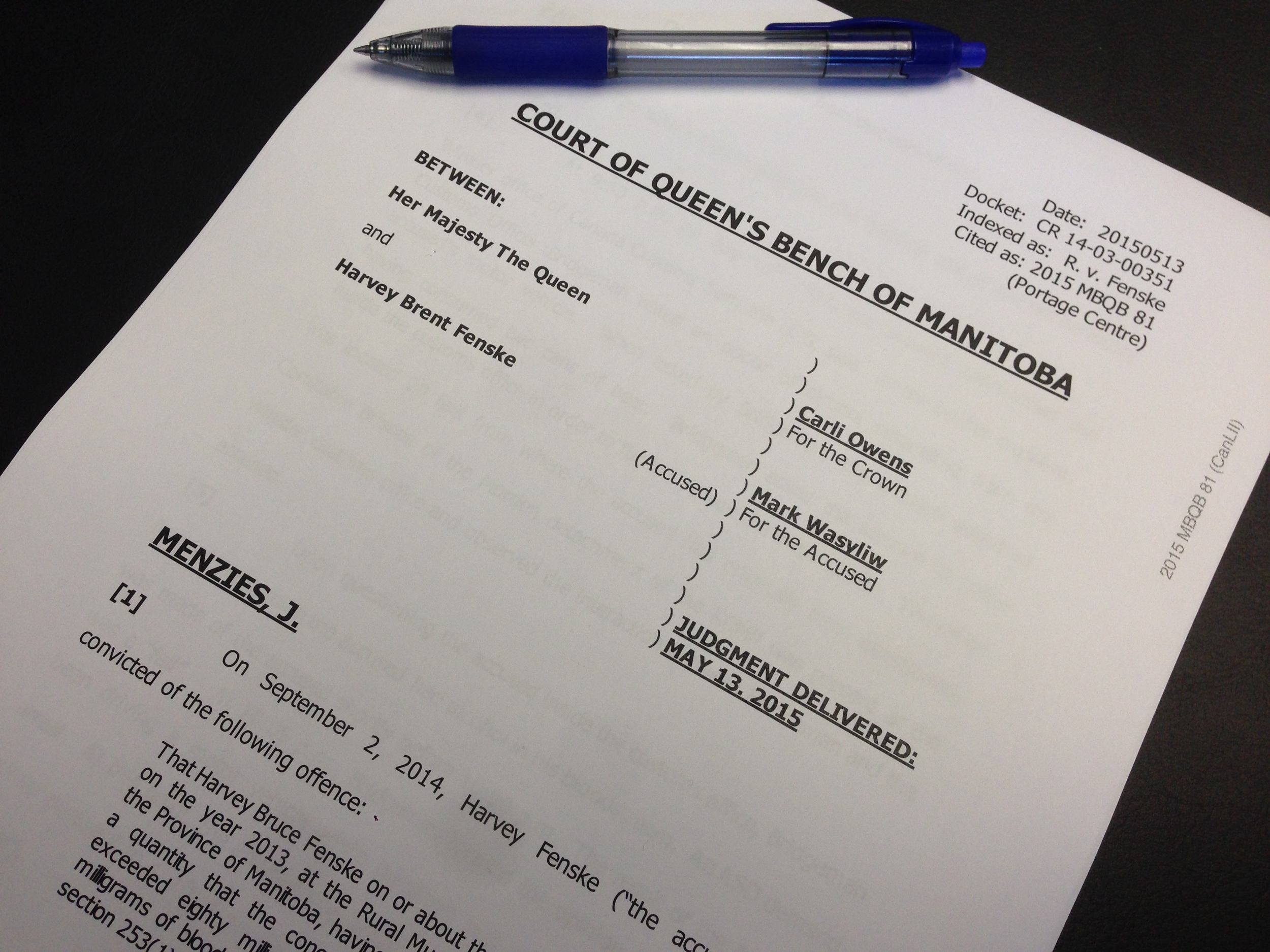There was an interesting article on the Winnipeg Sun's website a few weeks back called "Feds propose stiffer penalties for drunk drivers who kill." The Conservative government proposed a mandatory minimum 6 year jail sentence for anyone convicted of driving while impaired causing death. The legislation is being put on the back burner for now as a federal election was just called. Right now, the mandatory minimum punishment is a $1,000 fine for the following offences:
- impaired care and control of a motor vehicle
- over .08 care and control of a motor vehicle
- driving impaired
- driving over .08
- refuse to provide sample (refusal)
- driving impaired causing bodily harm
- driving over .08 causing bodily harm
- driving impaired causing death
- driving over .08 causing death
In most cases where the driver is first offender and no one is injured or dies, a fine is imposed. However, in cases where someone is injured or dies, typically the driver will receive a jail sentence. Another case this summer was when a driver received a 26 month jail sentence for drinking and texting while driving that resulted in a head on collision with another vehicle, killing the driver. You can read about that story, "Drunken texter sent to jail for fatal crash."
I conducted a poll on my website that was, by no means, an official sample of the Canadian population. There were only 17 responses in total. However, there was a pretty even split the options outlined, with half the respondents thinking a minimum punishment of 2 years jail or less and half thinking a minimum punishment of 2 years jail or more.
I agree, a $1,000 fine is wholly inappropriate as a minimum punishment for a case where someone dies at the hands of a drunk driver. However, I trust judges to listen to the facts of the case and the details about the offender to arrive at a fit and appropriate sentence. And in most of these cases where a person is killed, the driver is going to jail already. It is difficult to agree with minimum sentences in cases where a person's mind and decision making ability is impaired by alcohol. In some cases, people plan to drink and drive and I would say that they should be held more accountable for their choices. Having said that, I have had a case where the client specifically arranged for a designated driver to get home safe. However, once he was home (and in an intoxicated state) he decided that he was hungry and needed to go through a drive thru. Thank goodness no one was injured in his case, but he had made a specific plan to not drink and drive. It was only while in a state of intoxication that he decided it was a "good idea" to get some food. In a case like that, I would say that his blameworthiness is lower and he should receive a lower penalty. The problem is if there is a minimum punishment of 6 years, there is no discretion for judges to determine what is fit and appropriate. Furthermore, increasing penalties for criminal offences does not work as an effective deterrent to stop people from engaging in the behaviour and you can read more about my thoughts on that on my previous post, "New Tougher Driving Laws for Manitoba."
Related articles
- Drive impaired related offences (MichaelDyck.ca)
- Trying to Beat the Breathalyzer Test (MichaelDyck.ca)
- Steinbach Man Sleeping in Car a Criminal? (MichaelDyck.ca)
- Are you guilty? (MichaelDyck.ca)
- What is the sentencing range for an impaired driving conviction (TomRees.ca)
- Common questions about driving impaired charges and DUIs (TomRees.ca)
- What does "care and control" mean in drive impaired cases (TomRees.ca)
About the author
Michael Dyck is a partner at Rees & Dyck Criminal Defence. He represents clients primarily from Winnipeg, Steinbach, and rural Manitoba. He has extensive experience helping people charged with criminal offences and focuses on building legal strategy with clients. To read more of his articles, please visit his partner's website TomRees.ca.




